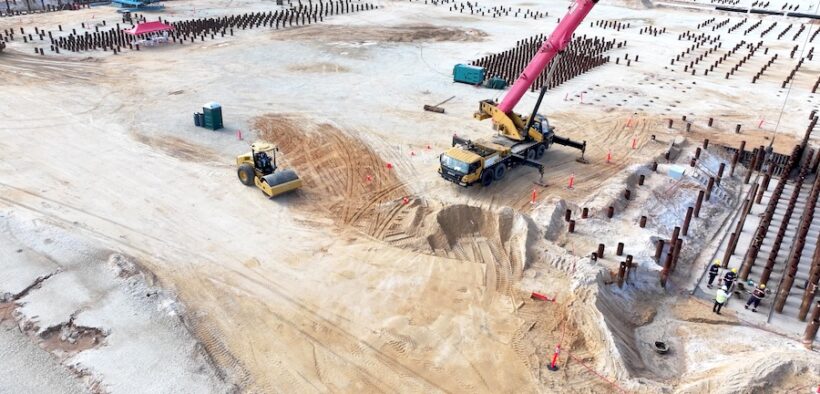Puerto Rico-based CH4 Systems wins EXIM award for $759M energy project in Guyana

CEO Juan Bellosta says the 300-megawatt gas-to-energy plant could cut energy costs by half and power the entire country.
CH4 Systems, an engineering, procurement and construction (EPC) company based in Guaynabo, Puerto Rico, and specializing in sustainable energy projects in emerging markets, recently received the “Deal of the Year Award” from the Export-Import Bank of the United States (EXIM) for a gas-to-energy project in Guyana that promises to reduce the South American country’s energy costs by up to 50%, as well as its dependence on imported heavy fuels.
The $759 million, 300-megawatt (MW) facility in Guyana’s West Bank Demerara region is expected to come online in the second quarter of next year. It was developed in partnership with Exxon Mobil, Lindsayca and Enerflex, and aims to satisfy the country’s full energy demand for the time being, CH4 CEO Juan Bellosta told News Is My Business.
“Right now, peak demand in Guyana doesn’t reach 200 MW in terms of what the actual grid is providing. However, with the influx of money from oil operations, the country’s business is booming. There’s a lot of investment and expectations for the industrial sector to grow very quickly,” explained Bellosta, revealing that the firm is bidding on a second 300 MW gas-to-energy facility “right next to this one.”
CH4 Systems has also bid on ongoing utility-scale energy projects in Puerto Rico, Bellosta added, among them a large-scale photovoltaic plant in Santa Isabel and a liquefied natural gas to hydrogen gas (LNG to H₂) combined cycle plant expected to generate 300 MW.
EXIM, the official export credit agency of the U.S. federal government, granted the “Deal of the Year Award” to all firms involved in the Guyana project after it met the highest levels of QHSE (Quality, Health, Safety and Environment) standards and corporate social responsibility.
Energy boom in Guyana
In 2015, Exxon Mobil discovered the Stabroek Oil and Gas Block, a sizable oil and gas reservoir off Guyana’s Atlantic coast. The multinational giant also built a pipeline to bring the resources onshore. Since then, Guyana’s petroleum production has grown exponentially, from 15,000 barrels per day in 2019 to 630,000 in 2024.
The country’s economy has also boomed with double-digit growth since 2020, including a 62% increase in 2022, with oil and natural gas driving more than half the economic growth, according to a 2024 U.S. Energy Information Administration report.
But despite Guyana’s rapid development, challenges to its energy infrastructure remain, added Bellosta. “There are still brownouts happening. It’s an issue because growth is coming, but the infrastructure is still not there to back it,” he said.
Such challenges helped inform the design and construction of the gas-to-energy plant. For example, the project is relying on modular gas processing technologies, with prefabricated and pre-engineered components, mostly built in Texas, for faster and easier deployment.
The power plant, which also seeks to expand access to power in underserved communities and eliminate more than 1 million tons of carbon dioxide emissions annually, features two combined-cycle units comprising four gas turbines and two steam turbines, as well as a 60 megawatt-hour (MWh) battery energy storage system for temporary backup.
Another potential concern with the project has involved border tensions with neighboring Venezuela and its leader Nicolás Maduro, who has recently ramped up claims on the Essequibo region of Guyana where the gas-to-energy project is located.
“When Maduro made the statements to that effect, people got nervous,” Bellosta acknowledged. “It was important for the U.S. to have a strong relationship with the Guyanese government; that helped appease the general public’s nerves a bit, but actually being there on the project ground, it didn’t seem like a major issue,” the CEO added.




